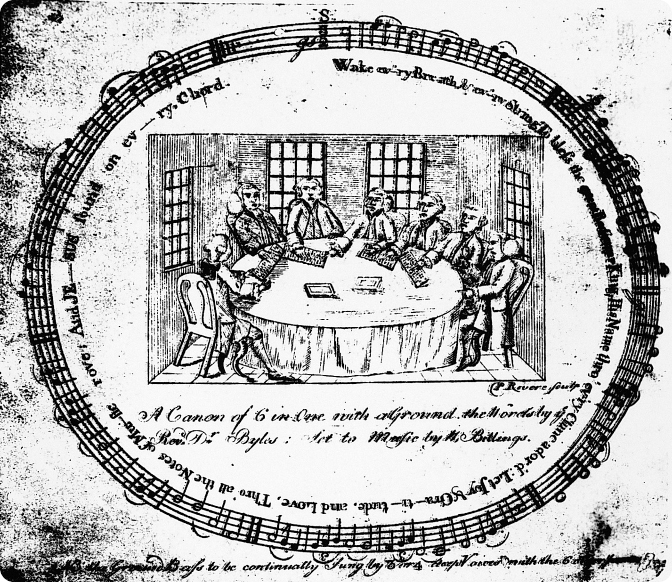1 | Early American Music: An Overview
Long before European settlers and African slaves arrived here, Native Americans had their own musical styles. (We touched on one of these in discussing sacred chant; see page 59.) As Native Americans were pushed farther and farther west, however, their music played little role in the development of European American and African American music.
The history of music among the early European settlers and their descendants is not a rich one. The Puritans disapproved of music; they thought it was frivolous, except for its supporting role in religion. In Puritan church services, rhyming versions of the psalms were sung like hymns, but when the words of the psalms were printed in the Bay Psalm Book of 1640 — the first book ever printed in North America — the music was not included, because just a few tunes, known to everyone, were used for all 150 psalms. In succeeding years, much of the energy of early American musicians was devoted to the composition of new psalm and hymn tunes, and to the teaching and improvement of church singing.

William Billings (1746–
Billings’s more secular-